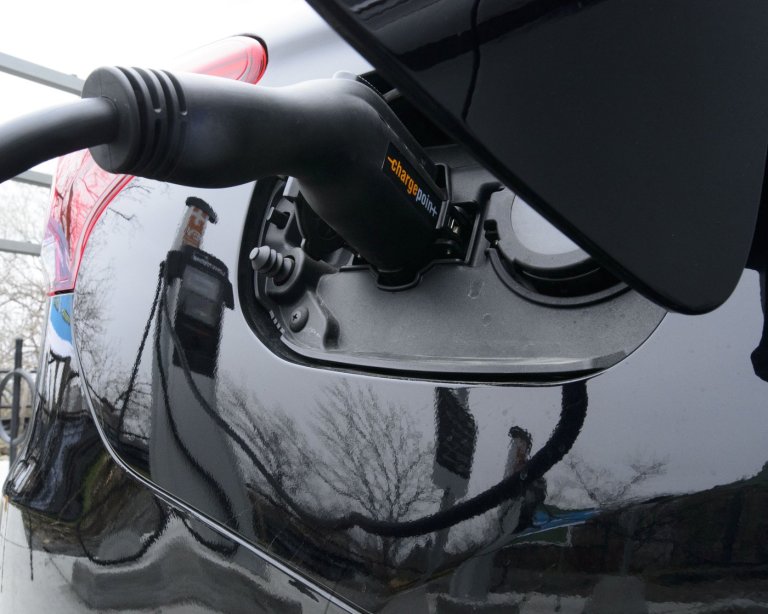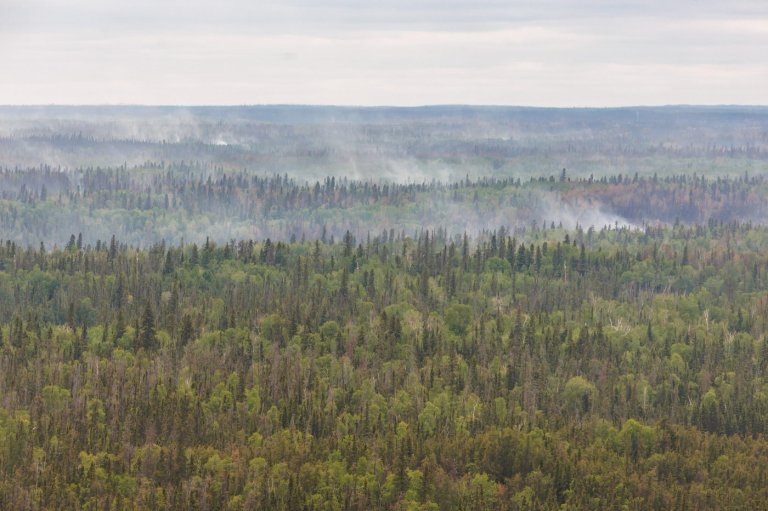Train disasters will be the ‘new normal’ unless safety rules change: Greenpeace
TORONTO – Greenpeace Canada says train disasters such as today’s derailment in Alberta will become the “new normal” unless Ottawa tightens safety rules for shipping dangerous goods by rail.
A CN train carrying crude oil and gas went off the tracks overnight in a hamlet west of Edmonton, sparking a massive fire that authorities warned could trigger an explosion.
It’s the third major derailment in the province in recent months, at a time when rail safety is increasingly under scrutiny.
Greenpeace says given the industry’s outdated safety standards, it’s only a matter of time until disaster strikes again.
Spokesman Keith Stewart says the federal government has taken some steps since July’s devastating derailment in Lac-Megantic, Que., but not enough to mitigate the risks.
He wants Ottawa to launch a comprehensive review of the safety regulations for transporting oil, whether by train or other means.
“I think what’s happened is we’re putting more and more oil on an infrastructure that is aging and wasn’t really designed for it in the first place and that’s increasing risks,” he said Saturday.
There were no reports of injuries in Saturday’s derailment, but the tiny community of Gainford was evacuated due to the fire.
The incident reignited the debate over the merits of moving oil by train or through pipelines, with many taking sides on social media.
“Another train derailment, another reason why I support pipelines,” one person wrote on Twitter.
“Another oil train derailment. Prepare for the pipeline advocates to come out swinging. But pipelines spill, and are infrastructural lock-in,” read another tweet.
Rail safety has been a hot button issue since tank cars filled with oil exploded after rolling into Lac-Megantic — a catastrophe that ravaged the town’s historic core and claimed an estimated 47 lives.
Transport Canada issued several emergency orders in response to the tragedy, requiring that at least two crew members must work trains that carry dangerous goods.
In addition, no locomotive attached to one or more loaded tank cars transporting dangerous materials can be left unattended on a main track.
The Federation of Canadian Municipalities also formed a rail-safety working group shortly after the Lac Megantic derailment and asked Transport Canada for more information about the transportation of hazardous goods.
But federal officials have cautioned that such information could pose a safety risk if it fell into the wrong hands.
Join the Conversation!
Want to share your thoughts, add context, or connect with others in your community? Create a free account to comment on stories, ask questions, and join meaningful discussions on our new site.














Leave a Reply
You must be logged in to post a comment.